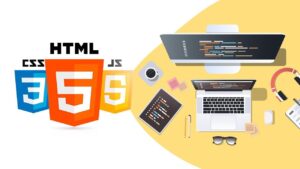In recent years, coding bootcamps have become a popular option for people who want to break into the tech industry. Unlike traditional university degrees, coding bootcamps promise to teach programming skills in a fraction of the time. But with so many options and high tuition costs, it’s natural to wonder: are coding bootcamps really worth it? This article will explain what coding bootcamps entail, explore their benefits and drawbacks, and help you determine if they’re the right choice for you.

What Are Coding Bootcamps?
A coding bootcamp is an intensive, short-term training program that teaches students the skills they need to become job-ready developers. Typically, these programs focus on web development, Python programming, JavaScript programming, and other in-demand programming languages. Coding bootcamps are designed to be immersive, with classes often spanning several hours each day, and they can last anywhere from a few weeks to six months.
Coding bootcamps typically cover both front-end and back-end development, giving students the skills to build and maintain websites and applications. They focus on the practical aspects of learning to code, often incorporating projects and coding tutorials to give students hands-on experience.
The Benefits of Coding Bootcamps
1. Accelerated Learning
One of the biggest draws of a coding bootcamp is its accelerated pace. In a few short months, students cover material that would take years to learn through traditional education paths. For programming beginners, bootcamps offer structured programming courses that cover everything from coding from scratch to advanced programming topics.
2. Hands-On Experience
Most coding bootcamps are project-based, meaning students work on real-world projects throughout the course. These projects build skills and also serve as portfolio pieces, which are valuable when applying for jobs. Many bootcamps focus on practical applications, with coding tutorials and assignments that simulate on-the-job tasks, providing an opportunity to apply knowledge in a meaningful way.
3. Job Placement Assistance
Many coding bootcamps offer job placement assistance, including resume help, interview prep, and networking events with employers. Some bootcamps even have partnerships with tech companies and provide access to job openings. For students serious about entering the tech industry, these connections can be invaluable.
4. Specialized Curriculum
Coding bootcamps focus on teaching only the skills that are necessary for the job market. This means you’ll spend less time on theory and more time on practical, job-ready skills. If you’re interested in learning web development or mastering a specific programming language like JavaScript or Python, bootcamps often provide streamlined programming resources tailored to these skills.
Potential Drawbacks of Coding Bootcamps
1. High Cost
Coding bootcamps are not cheap, with tuition ranging from a few thousand to over twenty thousand dollars. While there are scholarships and income share agreements (ISAs) that allow students to pay tuition after landing a job, the cost can still be a barrier. It’s essential to weigh the financial investment against your career goals.
2. Intensive Learning Environment
Coding bootcamps are fast-paced, and the immersive experience can be overwhelming, especially for complete beginners. These programs are not for everyone, as they require a strong commitment and the ability to learn quickly. If you’re someone who needs a slower, more thorough approach to learning to code, a traditional course might be a better option.
3. Limited Scope
While bootcamps provide valuable skills, they often focus on a limited set of programming languages and frameworks. For example, a bootcamp might focus heavily on JavaScript programming for front-end development but not cover other languages like Java or C++. If you’re interested in a broader computer science education, a bootcamp may not provide the depth you’re looking for.
Who Should Consider a Coding Bootcamp?
Coding bootcamps can be a good fit for specific types of learners, including:
- Career Changers: For those looking to make a career shift, a coding bootcamp can provide the skills needed to transition into tech relatively quickly.
- Programming Beginners with Clear Goals: If you’re new to coding but have a specific goal (like becoming a web developer), bootcamps can offer targeted training.
- Self-Motivated Learners: The immersive and fast-paced nature of bootcamps means students need to be self-driven and ready to tackle challenges independently.
Alternatives to Coding Bootcamps
If a coding bootcamp doesn’t seem like the right fit, there are alternative ways to learn to code:
- Online Coding Courses: Platforms like Coursera, Udemy, and edX offer a range of programming courses that you can complete at your own pace. Some courses, such as “Python for Everybody” or “The Complete JavaScript Course,” cover essential programming languages and are more affordable than bootcamps.
- Programming Certifications: Earning a programming certification is another option for those seeking a more structured approach. Certifications in areas like web development, Python programming, or JavaScript programming are available from platforms like Microsoft, AWS, and Google, and can add credibility to your resume.
- Community College Programs: Many community colleges offer affordable programming courses in a variety of languages. These programs are often less intense than bootcamps and allow students to learn at a more manageable pace.
- Self-Study: For those who prefer flexibility, self-study is an option. There are countless free coding tutorials and programming resources available online, covering everything from basic programming for beginners to advanced programming concepts.
Evaluating the ROI of a Coding Bootcamp
To determine whether a coding bootcamp is worth the investment, consider the following factors:
- Job Placement Rates: Research the bootcamp’s job placement rate to see how successful graduates have been in landing jobs. Many bootcamps publish these statistics, which can help gauge the program’s effectiveness.
- Tuition Costs vs. Salary Expectations: Consider your career goals and the typical starting salary for the job you want. If you’re entering a high-paying field like software development, the bootcamp investment might be worthwhile.
- Personal Commitment: Coding bootcamps require a full-time commitment and may not be ideal if you’re balancing work, school, or family obligations. Make sure you’re prepared for the demands of an immersive learning experience.
Success Stories from Coding Bootcamps
Many successful developers have launched careers through coding bootcamps, transitioning from non-technical fields into lucrative tech positions. Bootcamp graduates have gone on to work for companies like Google, Amazon, and Microsoft. However, success requires dedication and hard work. The most successful bootcamp graduates often invest additional time outside of class, using online coding resources, practicing coding from scratch, and building personal projects.

Are Coding Bootcamps Worth It?
Coding bootcamps offer a fast and effective way to gain in-demand skills and enter the tech industry, but they aren’t the perfect solution for everyone. The answer to whether a coding bootcamp is worth it depends on your individual goals, budget, and learning style. If you’re committed, have clear career objectives, and can handle an intensive learning environment, a coding bootcamp could be a valuable investment.
For those looking for flexibility or a broader education in computer science, traditional programming courses, certifications, or self-study might be better options. Ultimately, it’s about finding the learning path that aligns with your career goals and personal circumstances.



